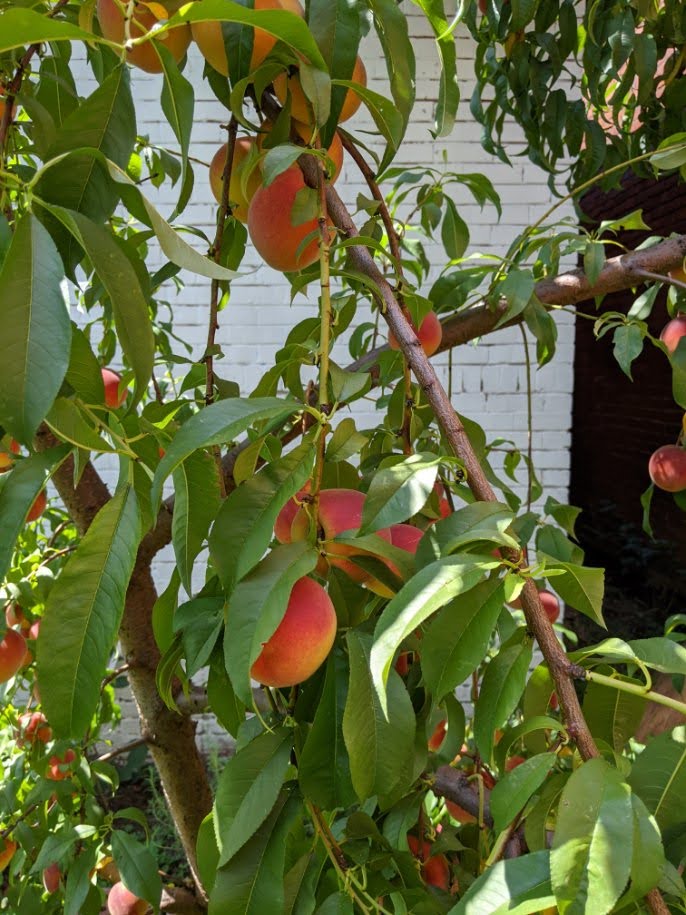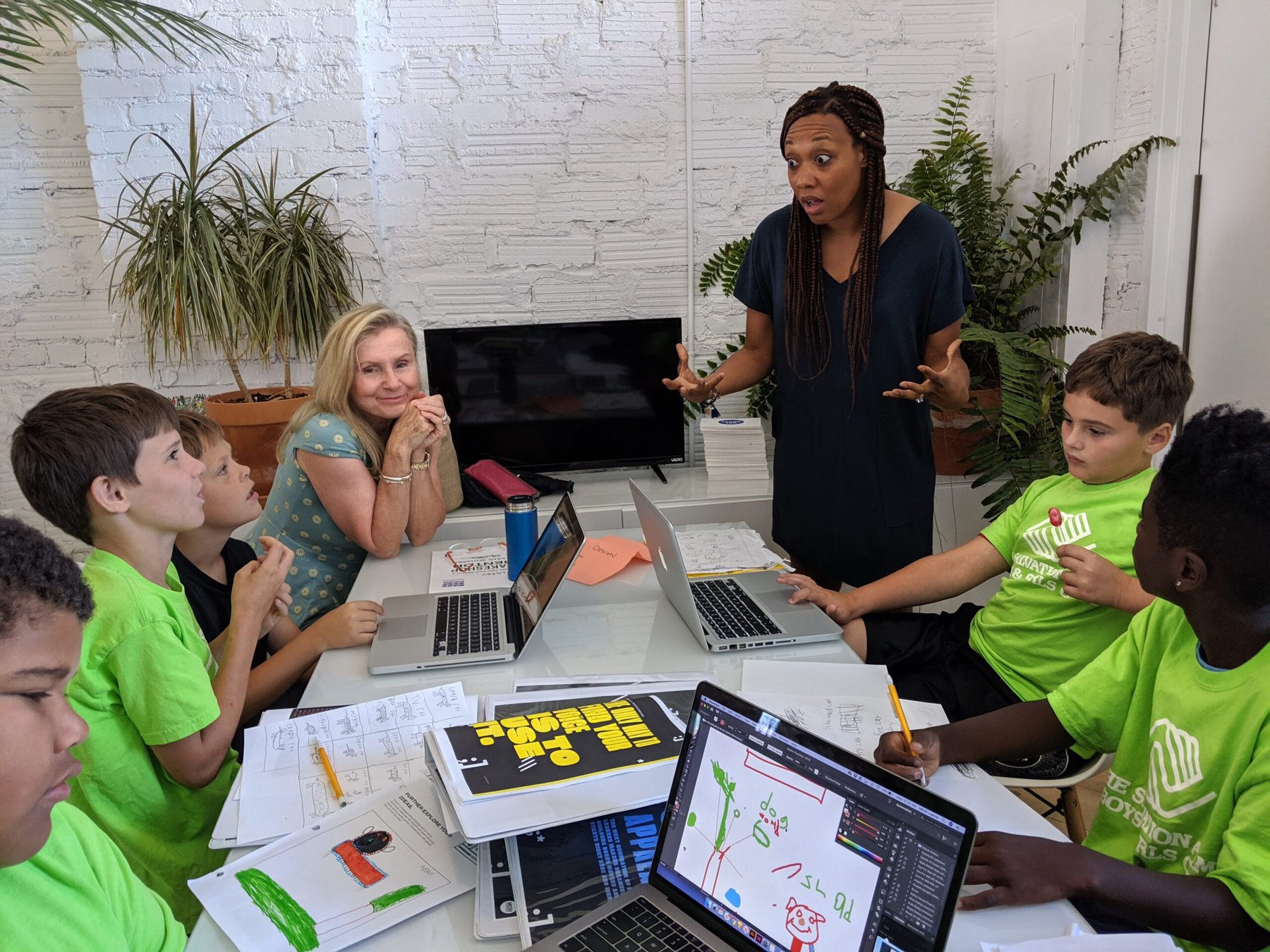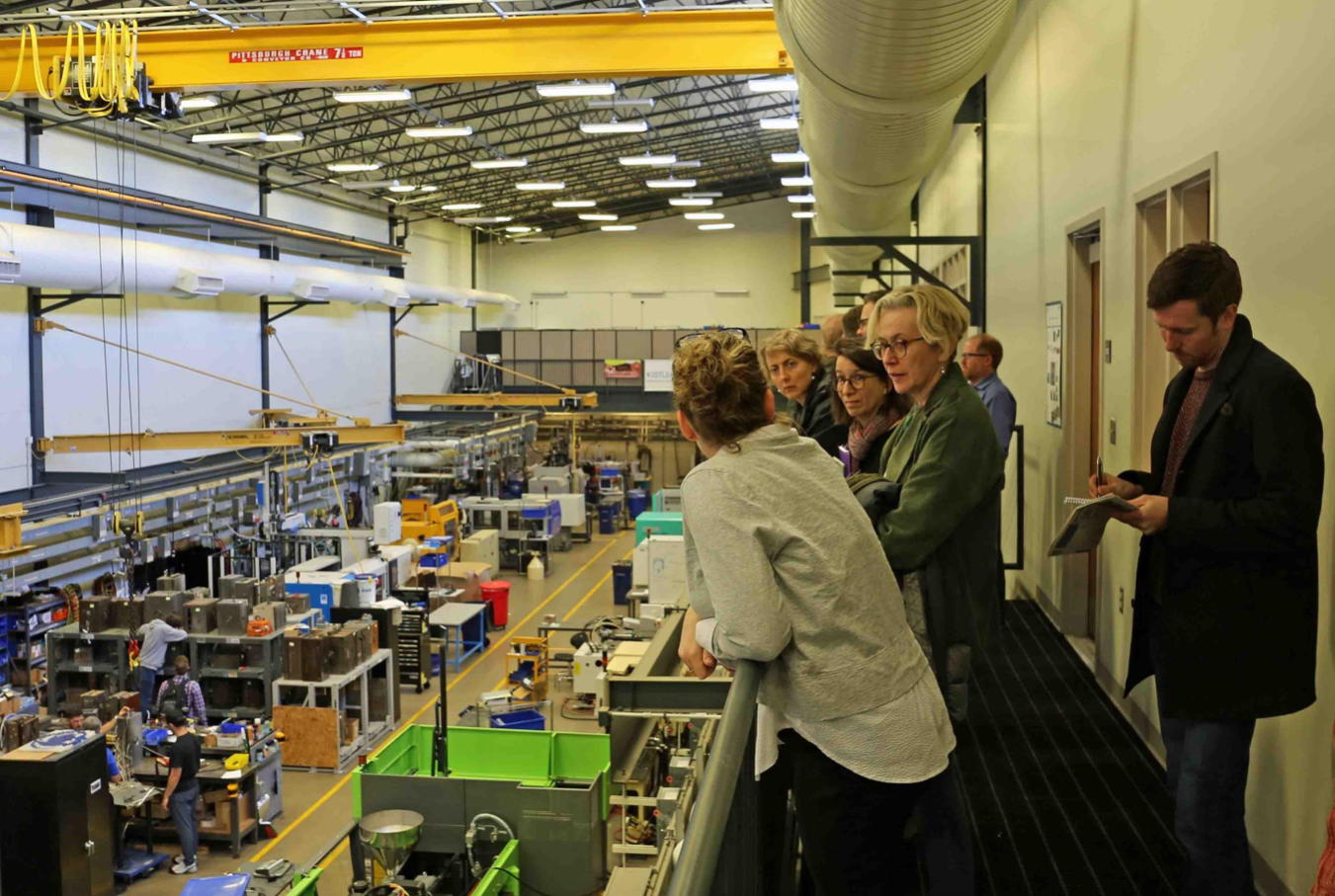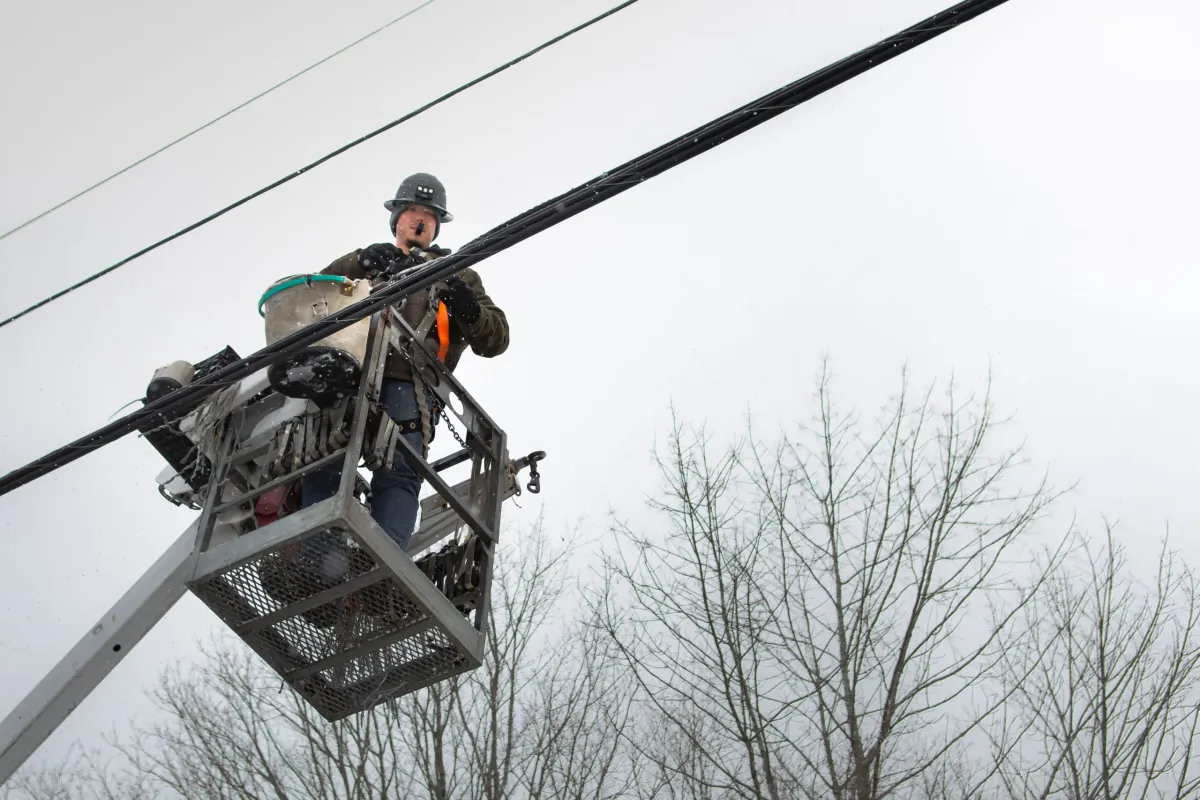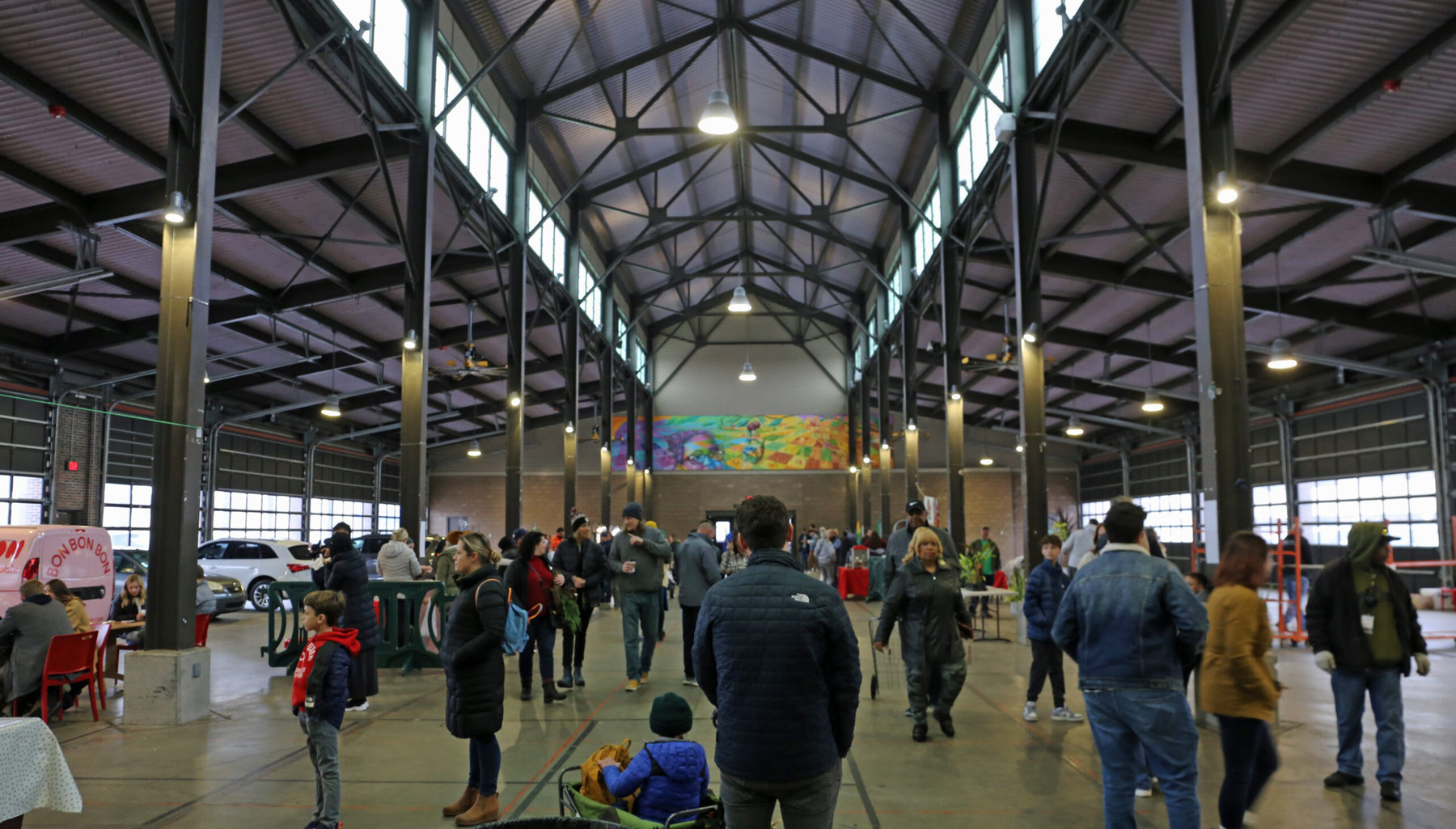Behind the 4,000-square-foot building in the Elk City neighborhood of Charleston, West Virginia, a shed stood alone outside. Shortly after Megan Bullock closed on the property in 2015, 30 local artists, craftspeople, and neighbors pitched in and set to work rehabbing the interior. As the shed came down, out poured opinions of what should be – and what could not be – done with the backyard lot.
Some saw what it might be – perhaps pave it over to make a parking lot. Others focused on what they thought it could not be – certainly not a garden with the arid soil there. And even if anything were planted and did survive, nothing, some told her, would bear flowers or fruit because of the barren soil.
While some fruit trees – apples, pears, plums, and sweet cherries – require a mate to pollinate, peach trees are capable of self-pollination. And in the summer of 2020, in the lot behind MakeShop Design Lab, the 20-foot-tall Prunus persica Megan’s community planted five years before bore plenty of peaches.
The next-door bakery, Vandalia Company, began working peaches into their recipes, and Megan and her crew invited neighbors over to pick peaches (while safely social distancing). Soon thereafter, free boxes of peaches were on the street for people to just take. In the neighborhood during the summer, there were grilled peaches and peach turnovers – people making and delighting in “beautiful feasts,” as Megan puts it.
“It was so important to us because in in the middle of the pandemic – in a dark time, where we weren’t able to have people physically gather in our space, and we weren’t able to have kids in our studio that summer – this tree that was planted in what everyone told us was unfertile soil bore fruit,” Megan says. “It was just such a moment of joy, which I think is very, very important in this process.”

Four years before peach summer, Megan launched the MakeShop Design Lab, a project of Studio MESH, in partnership with Boys & Girls Club, Fun Fitness Kids Club, Financial Literacy Bootcamp, Elk City Renewal Association, and youth of the west side, with support from west side businesses and the Greater Kanawha Valley Foundation. A place for “collaboration, celebration, prototyping, incubating ideas, and action,” as branded on its website, that would, by design, gather people together in person.
“We are workshops; we are coworking; we are pop-up shops; we are community-led happenings,” the site broadcasts. “We are open to all, and we are ready to change the world, starting in West Virginia.”
“I believe that Appalachians and rural America deserve the same creative opportunities afforded to urban areas,” Megan explains. “Growing up in West Virginia, I really pined for a place to go where I could explore my own creativity and collaborate and share ideas with other folks – and that just didn’t exist for me when I was young in Charleston.”
Like many West Virginians, Megan’s past is rooted in coal.
“Coal put food on my table growing up,” she says. “Anyone you talk to in West Virginia has, within two or three degrees, some connection to coal that’s contributed to their livelihoods. And we’re in a space right now where we’re transitioning away from that economy.”
While West Virginia still leads the Appalachian region in coal production, ranking only second in total U.S. coal production to Wyoming, coal no longer powers the Mountain State’s economy the way it once did and the decline continues.
“We need to start asking ourselves the questions – what’s next, and who’s at the table to decide what’s next?” Megan asks.
Like more and more West Virginians, Megan’s future is not rooted in coal. So, as a young adult, she left Charleston for college to study at the Rhode Island School of Design and gained big-city experience working in New York City with clients from across the world through her design practice. But Charleston never left her mind.
“I really wanted to take that experience that I have and bring it back home to the place that shaped me, to start the kind of space that I dreamed of as a kid.”
That dream became a reality in 2015 when Megan followed in the footsteps of her father, who more than a decade prior purchased his first building to renovate in the westside neighborhood of Charleston. Fast-forward four years to 2019, MakeShop had 80 Charleston kids learning design thinking and ideation, graphic design, and coding through its in-studio youth program. Megan and her team custom built the curriculum from open-source materials from the MIT Media Lab, the Rhode Island School of Design, IDEO, Girls Garage, and other industry leaders.
During the Covid-19 pandemic, Megan and her team pivoted to an online platform, repurposing funding they had received to hire two high school seniors and a college freshman, all of whom had had experience with the MakeShop youth program.
Equipped with MakeShop-supplied laptops complete with video and design editing software, the three teenagers learned the skills to produce and edit digital workshops. They created video workshops with adapted programming specific to iPads since students through the Kanawha school system had iPads they were able to take home with them over the summer and thus were still able to participate in the MakeShop experience.
Whether participating in-person or digitally, these workshops prove to be more than just learning and creative-competency building opportunities for the participations; they create moments for community engagement, from introducing a child with an idea of how to help the city’s homeless population to the city’s economic development director to another’s project to improve public safety by creating public art displays illuminating streets at night by working with the city’s public art director.
“It’s very important, in my mind, to ask young people what their ideas are, and to introduce them to leadership so that those ideas can come to life,” Megan says. “In a smaller community like Charleston, there’s access to leaders, and those leaders in our community are more than willing to – are eager and hungry to – learn what people in our town are looking for, no matter what age they are. It’s a really beautiful thing about Charleston.”
And the work in Charleston isn’t being kept a secret. Like the available resources MakeShop draws from to shape its curriculum, their blueprints are open-sourced for others to tap into.
Each participant receives a binder with the curriculum in it. Now, Megan and the MakeShop team are developing a universal teacher’s guide to first introduce to other learning programs in West Virginia and then outward to other rural areas nationwide.
“The goal eventually is to make this accessible to anybody in rural America, anybody who wants to think about introducing their kids to different work opportunities, to the tech industry, and to simultaneously develop pride in place – to cultivate creative confidence and agency in their lives,” Megan says.
To any doubters and naysayers who say this won’t or can’t happen, she has a peach tree in Charleston to show them.
